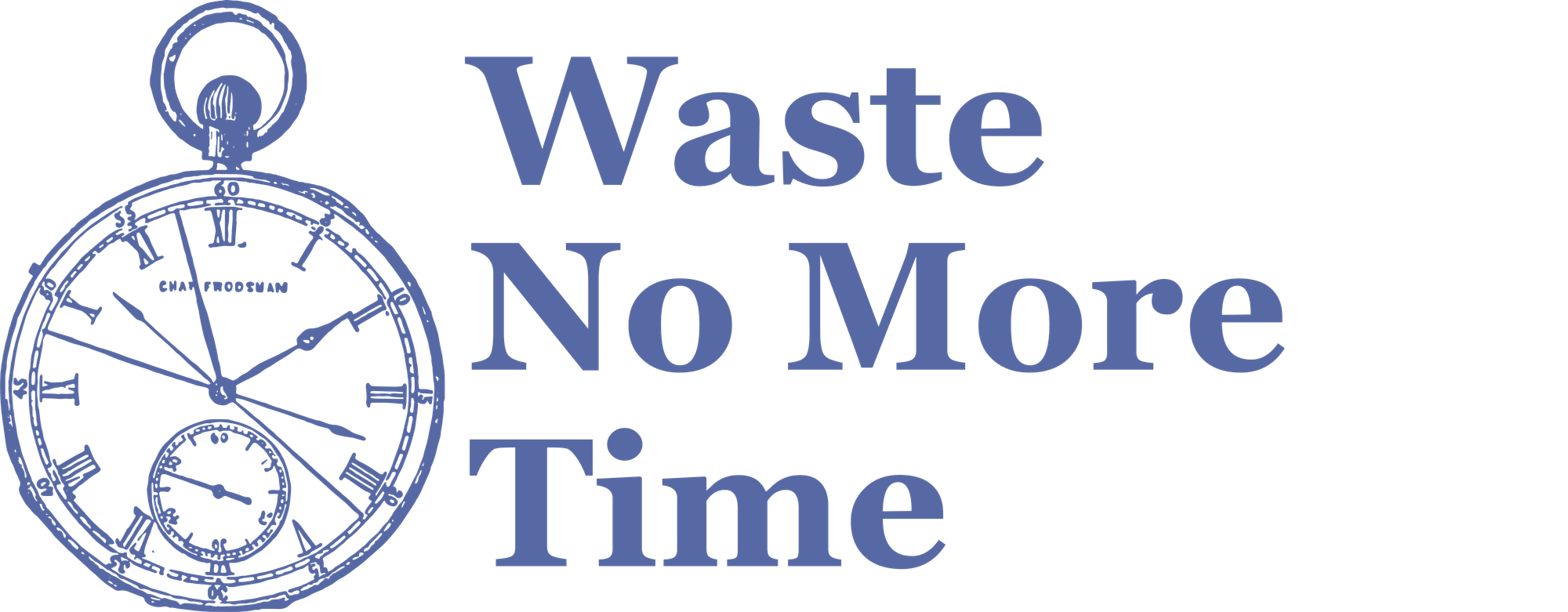A Commonplace Book: Why You Need One

“We should hunt out the helpful pieces of teaching and the spirited and noble-minded sayings which are capable of immediate practical application–not far-fetched or archaic expressions or extravagant metaphors and figures of speech–and learn them so well that words become works.” - Seneca
You’re in a meeting at work. Your boss says that they’re looking for new ideas on how to improve efficiency. Great! You’ve got a ton of ideas. You try to remember that amazing idea that you had last week about how to improve efficiency… but it’s all hazy.
You’re trying to clear the cobwebs, searching for what you know will be brilliant. You know it’s there. You can feel it, almost touch it, but no matter what you do, it’s still a hazy mess. The frustration builds and you think, “Why didn’t I write it down?!?!”
This happens to all of us. A spark of genius enters our brain. We pat ourselves on the back. Then move on. We can be overconfident in our ability to remember important information. When we actually write it down, we have too many places where we keep notes and reminders that it gets lost in the clutter.
Why do we treat such important moments with levity? Do we not believe that our ideas are important? Are these ideas not worth our time and energy?
We are mere mortals, not superhuman. Our brains have evolved to be really efficient with memory, not accurate. It’s not efficient to remember everything. We have limitations.
Memories fade with time. Your brain does its best to fill in the gaps caused by fading, but it isn’t perfect. Because of this, your memories are false to some extent. Memories may even become exaggerated over time. That eighteen-inch trout you caught three years ago has now become thirty-eight inches. The fish didn’t grow, the memory just became a bit exaggerated.
Our brains are powerful, but they evolved to prioritize efficiency. Remembering that million-dollar idea that you had in the shower is not as urgent as remembering that you overslept and are running late for an important meeting.
History has long been a tool for us to find solutions to modern-day problems. Even regarding how to develop a time-tested system for remembering important things. Dating all the way back to the second century, we can find examples of influential leaders, thinkers, artists, and other successful individuals who kept what was called a commonplace book.
What is a Commonplace Book?
Commonplace books have been used to keep track of ideas, quotes, conversations, books, experiences — pretty much anything a person wants to remember in their life. Some examples of highly successful individuals who have kept, or still keep, commonplace books are:
- Second-century Roman Emperor Marcus Aurelius kept a commonplace book, which today we know as the book Meditations. It contains his private thoughts, written to himself. As a daily ritual, he wrote himself advice and reminders on how to live a virtuous life. He even wrestled with problems that we deal with today, such as how to respond to a pandemic (the Antonine Plague), how to get up early in the morning, and how to deal with anger.
- Leonardo da Vinci kept notebooks filled with ideas for inventions, intricate drawings, notes about other people’s ideas, and much, much more. It’s estimated that he produced 20,000 - 28,000 pages of notes on a variety of topics.
- Best-selling author Robert Greene has meticulously kept a commonplace book for decades. He credits his success as an author to his commonplace book. Instead of keeping everything in notebooks, he uses a notecard system. The Robert Greene system is similar to the tried-and-true Zettelkasten system. His notecard system is used to create and connect notes to make and sustain a web of knowledge that he can refer to while writing his books.
- President Ronald Reagan also used a notecard system to create his version of a commonplace book. He earned the title of “The Great Communicator” because of his public speaking ability. Often he would carry blank notecards around with him to write jokes he had heard or inspiring quotes. He would use these throughout his life to great effect as an actor, spokesperson, and President. The historian Douglas Brinkley said about Reagan’s collection of notecards: “If the Reagans’ home in Palisades were burning, this would be one of the things Reagan would immediately drag out of the house. He carried them with him all over like a carpenter brings their tools. These were the tools for his trade.”
As you can see, people use commonplace books for a variety of reasons and in various formats. There is no right or wrong way to keep a commonplace book. The commonality between them is that they are used to capture, organize, distill, and express information. They aren’t just kept in order to write something down and forget about it later. A commonplace book is used for the future self.
The Process
The process starts by being observant as you read, while having conversations, paying attention to your thoughts, and absorbing your surroundings. You capture these observations and organize them in a way that allows you to reference them when needed. You can organize them by topic, project, or date — they’re your notes, so organize them as you’d like. Just make sure your notes time travel well.
This is where distill comes in. Write your notes in a way that allows you to capture the most important details. You want to know exactly what was important when you need to read them. Also, make sure that your future self can understand what you wrote and why you wrote it. Remember that memories become hazy. Future you might not understand what current you is trying to say unless there is proper context.
The last part is to make your commonplace book functional. It should be used as a means of personal expression. To turn your ideas into something. Don’t just let your precious thoughts and notes sit gathering dust. You might not be writing a best-selling book, running an empire, painting the Mona Lisa, or preparing to tear down the Berlin Wall; but your future is still unwritten. You never know when you will need your commonplace book. It could be when that brilliant idea you capture becomes a reality, or when you’ll need to refer to those book notes you captured on public speaking because your CEO asks you to present at an important event (SCARY!).
Don’t be stuck wishing that you had created a commonplace book. Don’t let your future self down.
Your commonplace book will be as unique as you are. It will become a prized possession that you will grow to appreciate the more you add to it. You’ll be grateful that you started the practice of keeping a commonplace book because it will become a faithful companion as you use it to remember important events, quotes, ideas, inspiration, and all the other things that you find meaningful. Without a place to record important notes, how can they be remembered? Most will disappear with time.
The Format
Don’t stress about the format you use for your commonplace book. Just start keeping one as soon as possible. You can use a 30-cent notebook, notecards, a word document, or fancy programs such as Evernote, Obsidian, Craft, or Notion. Experiment with different formats to find out what works for you.
I personally use a hybrid system for my commonplace book. My process has evolved a lot since I started this practice a couple of years ago. It started out as bullet journaling and has evolved as my needs have changed. I imagine it will continue to change as my needs change.
Everywhere I go I carry around a Leuchtturm1917 A6 pocket notebook with a felt tip sharpie pen. I use it for my daily journal and schedule, and to capture notes and thoughts on the go. I transfer the most important thoughts and notes to 3x5 note cards that I then keep in photo boxes categorized by the various projects. A few computer applications are used to capture and store my digital commonplace book. These are Notion- used for project management, reading lists, article links, and web highlights. Readwise- used as a central location for my ebook highlights and notes, since it automatically links to my kindle and stores this information for me. Finally, Obsidian- used as my digital note-taking platform, since it is brilliant at creating backlinks for all of my notes and helps me identify common themes and patterns between them.
My commonplace book is filled with highlights and notes from the books I read, inspiring quotes I hear from other people, thoughts and ideas I have during the day, and a list of things that I’d like to do one day. Whatever I decide to capture will help my future self.
My advice on starting a commonplace book is to keep it simple. Don’t overcomplicate it. It has to be simple or you won’t do it. My commonplace book started out as a pocket notebook. I stuck with that for a year before reading about Robert Greene’s notecard system. That is when I implemented notecards as an addition to my pocket journal. The digital aspects of my commonplace book began when I realized I was struggling to keep track of articles and ebooks. Notion worked for a while, then Obsidian helped me organize my digital notes in a more meaningful way, and now Readwise helps me keep track of my ebook notes even better than Notion did. Each of these formats serves a purpose and together they elevate each other.
As you can see, I only added new formats to my commonplace book as I needed them. I tried some other formats, but they added more friction than help, so I dropped them. The key is to keep the process simple so that you can easily maintain it.
Start your commonplace book today. Don’t put it off. It will add value to your life. You might not see why you need a commonplace book, but your future self will thank you for taking the time to create and maintain it.
Be kind to your future self.
Weekly Challenge: Create your own commonplace book.
- Grab a notebook, notecards, your phone, or whatever is most accessible, and write “Commonplace Book” on it.
- Write one thought, quote, joke, or whatever you’d like.
- Make a commitment to contribute to your commonplace book every day for at least one week.
- At the end of the week, review what you’ve captured, and then use your commonplace book to write about what it was like creating your book. What value does it add? How can you make it easier to maintain? Is it possible to organize it better? Is what I’ve captured meaningful to me? How can I properly maintain my new commonplace book?
Recommended Reading:
The Bullet Journal Method: Track the Past, Order the Present, Design the Future by Ryder Carrol — “Each Bullet Journal becomes another volume in the story of your life. Does it represent the life you want to live? If not, then leverage the lessons you’ve learned to change the narrative in the next volume.”
How to Take Smart Notes: One Simple Technique to Boost Writing, Learning and Thinking by Sönke Ahrens — “Just collecting unprocessed fleeting notes inevitably leads to chaos. Even small amounts of unclear and unrelated notes lingering around your desk will soon induce the wish of starting from scratch.”
This post contains affiliate links. If you use these links to buy something, I may earn a commission. Thanks.

